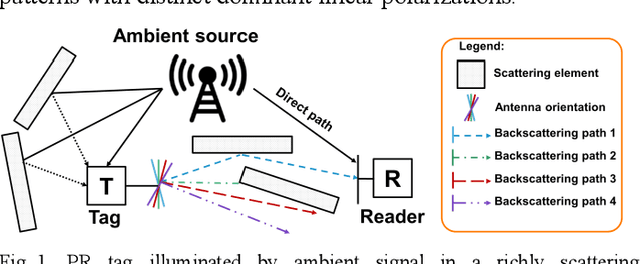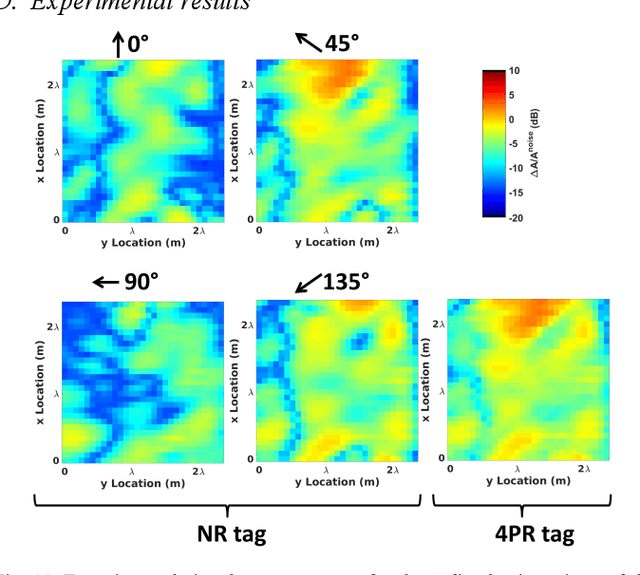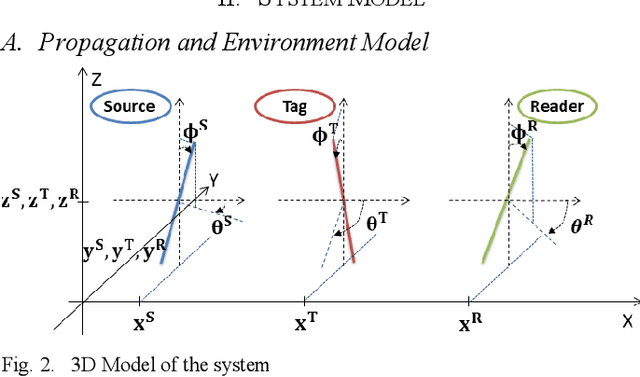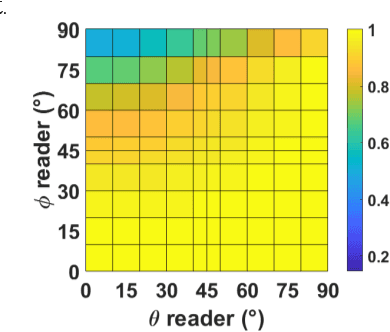Robust Ambient Backscatter Communications with Polarization Reconfigurable Tags
Paper and Code
Nov 02, 2021



Ambient backscatter communication system is an emerging and promising low-energy technology for Internet of Things. In such system, a device named tag, sends a binary message to a reader by backscattering a radio frequency signal generated by an ambient source. Such tag can operate without battery and without generating additional wave. However, the tag-to-reader link suffers from the source-to-reader direct interference. In this paper, for the first time, we propose to exploit a "polarization reconfigurable" antenna to improve robustness of the tag-to-reader link against the source-to-reader direct interference. Our proposed new tag sends its message by backscattering as an usual tag. However, it repeats its message several times, with a different radiation pattern and polarization, each time. We expect one polarization pattern to be better detected by the reader. We show by simulations and experiments, in line-of-sight and in richly scattering environment, that a polarization reconfigurable tag limited to 4 polarization directions outperforms a nonreconfigurable tag and nearly equals an ideally reconfigurable tag in performance.
 Add to Chrome
Add to Chrome Add to Firefox
Add to Firefox Add to Edge
Add to Edge